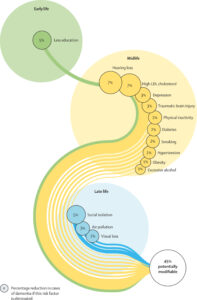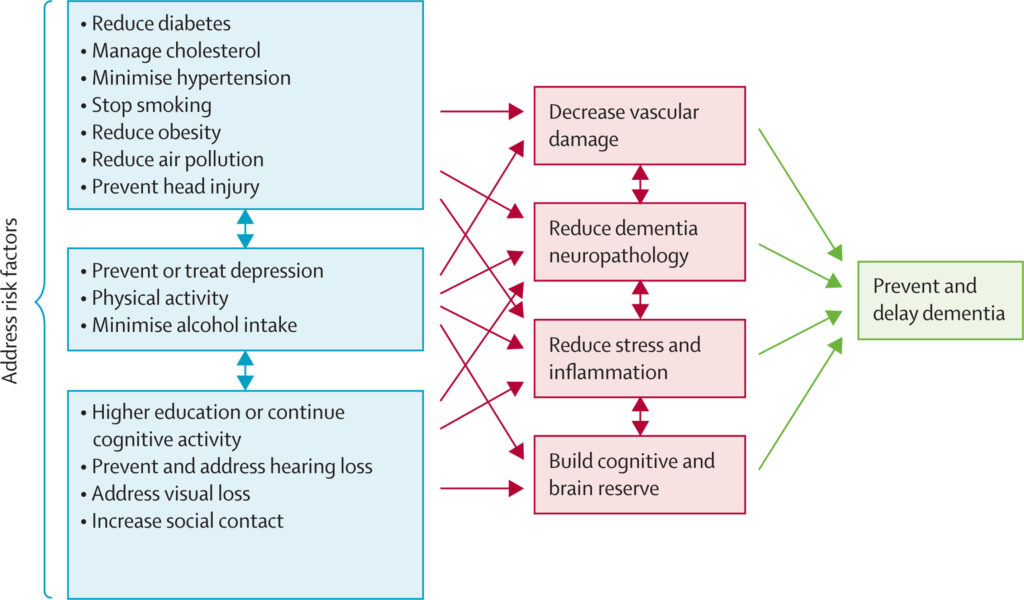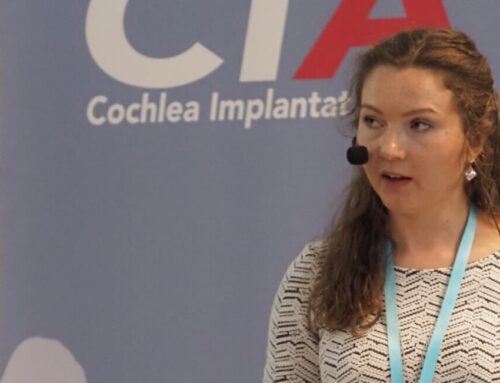New data confirm: Hearing care lowers the risk of dementia
New data confirms that hearing loss is one of the preventable risks for dementia. In fact, one of the two most significant. So, each and every one of us can reduce our individual risk of dementia!

The team led by London-based geriatric psychiatry specialist Prof. Gill Livingston, MBchB, MD, FRCPsych published the second update of their research “Dementia prevention, intervention, and care: 2024 report of the Lancet standing Commission” in the scientific journal The Lancet. [1] Back in 2017 [2] and again in 2020 [3], this group identified hearing loss as the biggest modifiable risk factor for dementia later in life.
In this so-called meta-study, the researchers compared data from all studies on the topic worldwide and thus obtained particularly meaningful and reliable results. In addition to the twelve previously known modifiable risk factors for dementia, two more have now been added: visual impairment and elevated cholesterol levels. Sleep deprivation, nutritional deficiencies, various infectious diseases and inflammations, including dental inflammation, as well as some mental and psychiatric illnesses and hormonal influences are also suspected.
However, the current study confirms hearing loss as a particularly significant dementia risk: the more pronounced the hearing impairment, the higher the risk of dementia later on. According to current findings, elevated LDL cholesterol levels and hearing loss are the two greatest avoidable risk factors for dementia, each accounting for seven percent.
Everyone can reduce their individual risk of dementia
In purely mathematical terms, almost half as many people would develop dementia if we were to eliminate all controllable risk factors. In fact, some of the factors influence each other, as neurologist Prof. Dr. Peter Berlit, Secretary General of the German Society of Neurology, stated. As an example, he cites the influence of hearing or sight loss on communication, which has an impact on cognitive abilities and social interactions. He mentions just two of the possible consequences of untreated hearing impairments, which can also affect the risk of dementia.
However, each and every individual can reduce the risk of dementia by avoiding the individual factors as far as possible or intervening where necessary. With regard to hearing loss: protect hearing as much as possible, provide adequate hearing care and therapy if necessary, maintain social contacts and address psychological stress caused by hearing loss!
Scientists recommend hearing care to prevent dementia

Each and every one of us can reduce the individual risk of dementia by minimizing health-related factors as much as possible, such as keeping our hearing intact. ©Adobe Stock
The hypothesis of some researchers that dementia and hearing loss have common, cardiovascular causes, meaning that hearing loss is merely an indicator of an increased risk of dementia, does not appear to be confirmed. However, the risk of dementia increases the longer hearing loss persists and the authors of the study suspect that “psychosocial consequences of hearing loss such as loneliness, depression and social isolation could play a role.” Hearing impaired people also require greater cognitive resources for listening and therefore have fewer cognitive resources for other impressions, according to the scientists. This could have an additional effect.
If hearing-impaired people use hearing aids, they achieve a: “significantly lower risk of cognitive decline and dementia than those who do not use aids. [...] The evidence for the benefits of hearing aids in terms of dementia risk is becoming increasingly clear,” the study authors affirm. With regard to health policy aspects, they advise: “The introduction of hearing aids to effectively prevent dementia would probably be cost-saving.”
[1] Livingston G Huntley J Liu KY et al. Dementia prevention, intervention, and care: 2024 report of the Lancet standing Commission. Lancet. 2024, https://doi.org/10.1016/S0140-6736(24)01296-0
[2] Livingston G Sommerlad A Orgeta V et al. Dementia prevention, intervention, and care. Lancet. 2017; 390: 2673-2734 https://doi.org/10.1016/S0140-6736(17)31363-6.
[3] Livingston G Huntley J Sommerlad A et al. Dementia prevention, intervention, and care: 2020 report of the Lancet Commission. Lancet. 2020; 396: 413-446 https://doi.org/10.1016/S0140-6736(20)30367-6
[4] https://science.orf.at/stories/3226155/ am 2. August 2024, 9:58 Uhr

Fig. 1: Percentage reduction in dementia cases if this risk factor is eliminated ©https://doi.org/10.1016/S0140-6736(24)01296-0:

Possible brain mechanisms to improve or maintain cognitive reserve and reduce potentially modifiable risk factors in dementia ©https://doi.org/10.1016/S0140-6736(24)01296-0:






